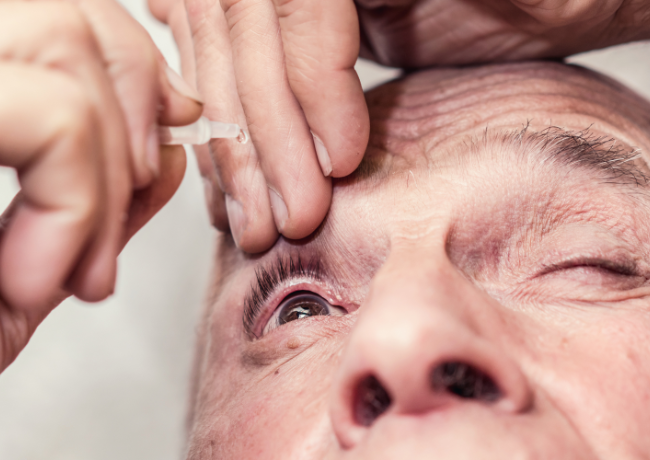Dozens of eye drops and ointments have been pulled from store shelves after a wave of recalls in 2023 and 2024, raising concerns about whether products used to relieve dry or irritated eyes are safe. Most recently, Brassica Pharma voluntarily pulled four eye ointments from stores including Walmart and CVS. This happened after the Food and Drug Administration’s inspection pointed out possible sterility problems.
Eye health is extremely crucial, and so is the proper use of eye products to avoid infections and other complications. Whether you’re using over-the-counter eye drops or prescription ointments, following a few essential guidelines can make a significant difference. Here are some comprehensive tips to ensure the safe use of eye products.
Identifying Signs of Contamination
Always check for signs of contamination before using any eye product. Contaminated products can introduce harmful bacteria or other pathogens to your eyes, potentially leading to infections or other eye issues. The following should be monitored:
- Discoloration:Any change in the color of the product indicates that it could be contaminated or decomposed.
- Cloudiness: Solutions that are no longer transparent suggest bacterial growth and other kinds of impurities.
- Unusual Odor: If the product emits an odor that differs from its typical scent, it could be a sign of contamination.
Sterilizing the Bottle’s Tip
Proper hygiene when handling eye products is essential. Dr. Christopher Starr, an associate professor of ophthalmology at Weill Cornell Medicine, recommends sterilizing the bottle’s tip with an alcohol wipe before each use. This practice can help remove any bacteria or debris that might have accumulated, reducing the risk of introducing contaminants into your eyes. According to the American Academy of Ophthalmology, keeping the bottle tip clean is essential to maintaining the sterility of the solution and preventing eye infections.
Checking for Cracks
Take time to check the bottle for cracks paying close attention to the area around the dispenser. Cracks can let bacteria in, which makes the product unsafe to use. If you spot any damage on the bottle, it’s best to throw it away and get a new one.
Keeping an Eye on the Expiration Date
Even when you store your eye products well and they seem clean, they can still break down as time passes. Always look at the expiration date on the product. Using eye drops or ointments that have expired can put your eye health at risk, as they may not work as well and have a higher chance of being contaminated. Dr. Starr says, “If your product is expired just toss it out and start fresh. You’re preventing eye problems, which is priceless.” The Centers for Disease Control and Prevention (CDC) also stress how important it is to follow expiration dates to avoid possible eye issues.
Additional Tips for Safe Eye Product Use
- Wash Your Hands: Make sure to wash your hands well before you put on any eye product. This helps to keep dirt and germs away from your eyes.
- Avoid Touching the Tip: Never touch the tip of the bottle or tube with your fingers or let it come into contact with any surfaces. This can introduce contaminants into the product.
- Proper Storage: Put eye products in a cool dry spot as the maker suggests. Don’t let them get too hot or cold, as this can make them less effective and clean.
- Follow Instructions: Always use eye products as directed by your healthcare provider or according to the instructions on the label. Overuse or misuse can lead to adverse effects.
Conclusion
Following these comprehensive guidelines can help ensure that your eye products remain safe and effective.
According to a report in The New York Times, no health problems have been linked to the eye ointments produced by Brassica Pharma. This is reassuring news for consumers relying on these products for eye care needs.
It’s therefore important not to jump to conclusions about recalls. A voluntary recall is often a proactive measure taken by companies to ensure the highest standards of safety and quality. It does not necessarily mean a product defect or the company or product is at fault. Instead, it often indicates that the company is being diligent in addressing potential issues before they become actual problems.
By initiating a voluntary recall, companies like Brassica Pharma & Global Pharma demonstrate their commitment to consumer safety and acting as responsible corporate citizens. This helps maintain trust and confidence in their products, showing that they prioritize the well-being of their customers above all else.
References
- American Academy of Ophthalmology. (2020). Eye Drops and Ointments. Retrieved from AAO
- Centers for Disease Control and Prevention. (2020). Healthy Contact Lens Wear and Care. Retrieved from CDCP
- Brassica Pharma Pvt. Ltd. Issues Voluntary Nationwide Recall. (2024). Retrieved from FDA
- Four Eye Ointments Pulled Because of Infection Risk. (2024). Retrieved from NYT

